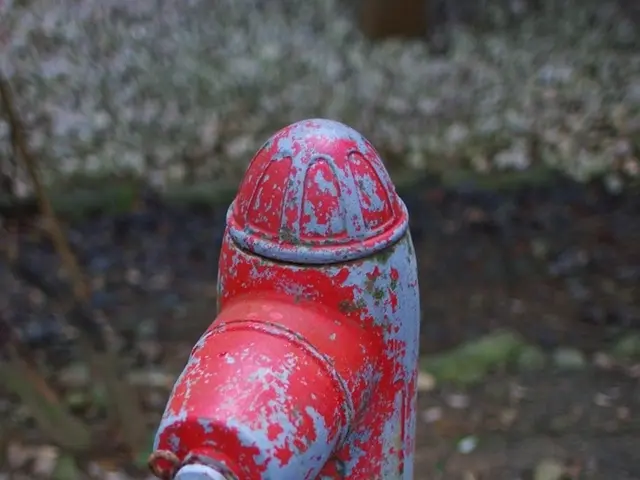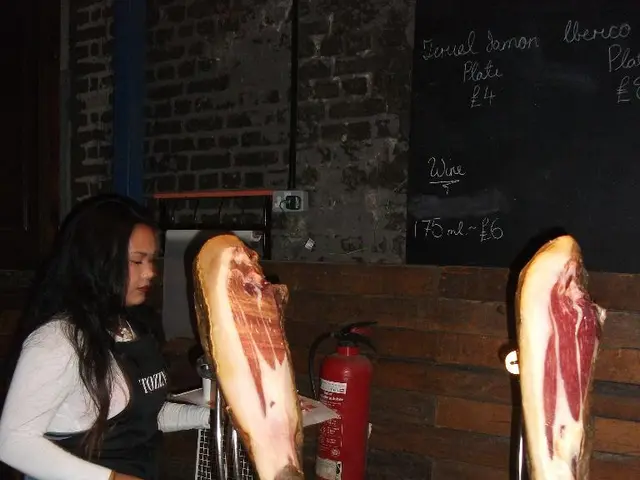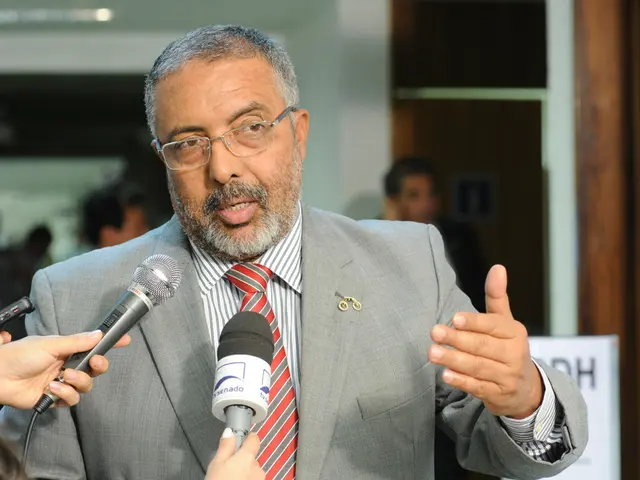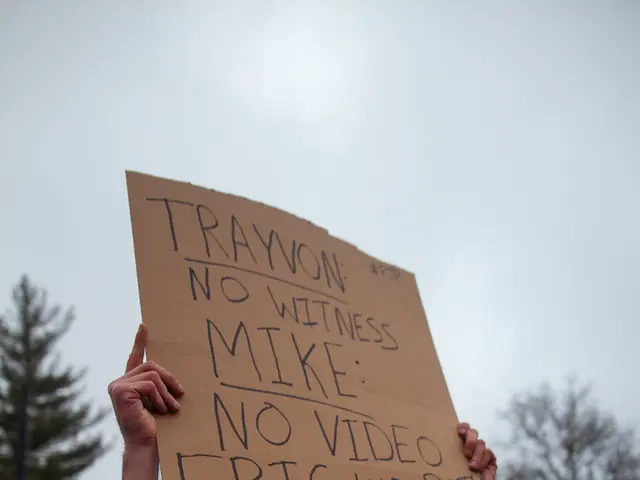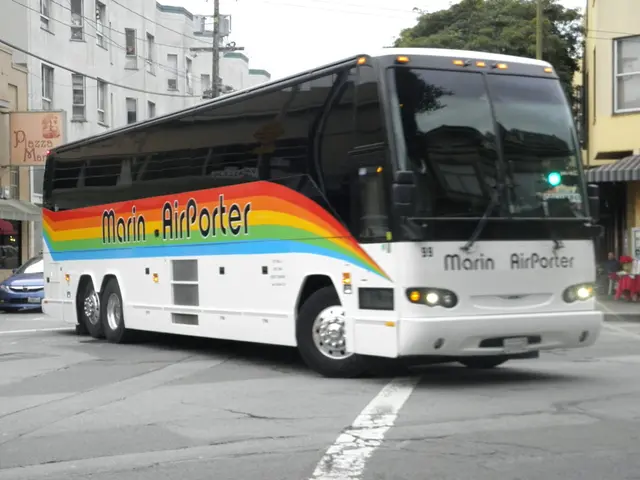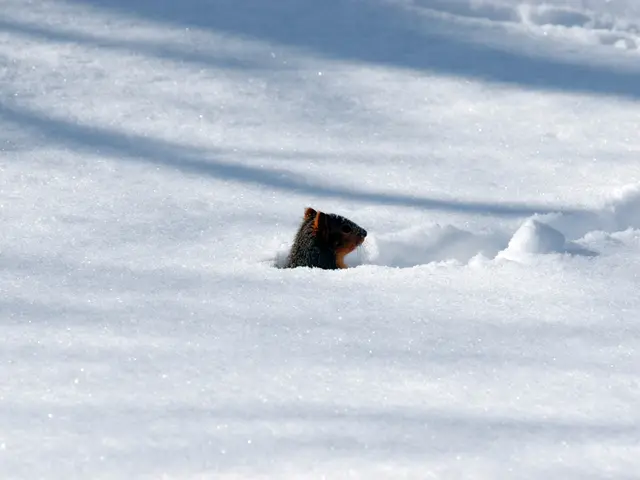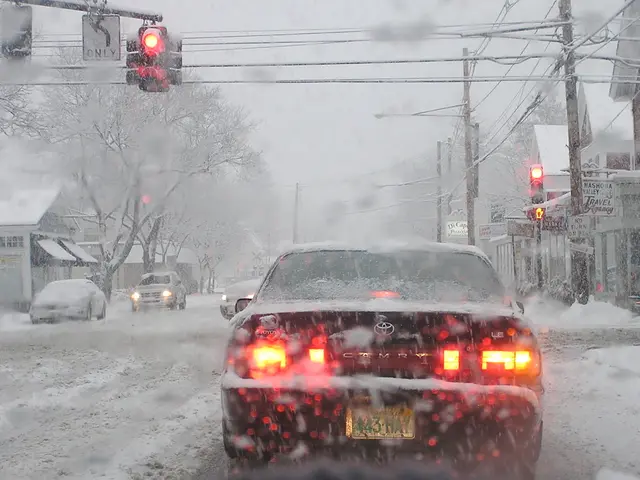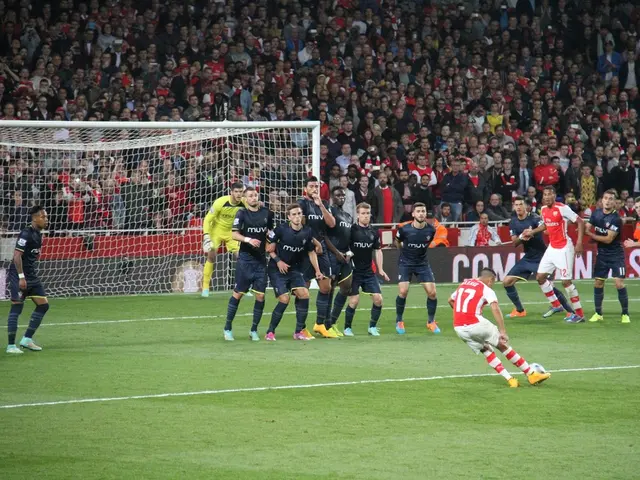Prosecutor Khan's Fourth Journey to Venezuela: An Unraveling of Crimes Against Humanity
ICC Prosecutor Establishes Presence in Venezuela, Plans Enhanced Collaboration
Mexico City, Mexico, April 23, 2024 (our website) - International Criminal Court (ICC) prosecutor Karim Khan jetted off to Caracas for a meet with Venezuelan President Nicolás Maduro and other key figures.
Khan announced the intent to collaborate with the Venezuelan government, developing a joint workplan to scrutinize alleged atrocities against humanity, and establishing agreements with various state institutions. An official ICC social media post revealed their objective for an "effective implementation" of the Rome Statute, the treaty legitimizing the ICC.
The prosecutor's trip follows the Hague-based court's decision to resume investigating Venezuela for potential human rights breaches, after their rejection of an appeal for a probe suspension. Upon arrival, Khan debuted a "technical assistance" office—far from a hush-hush operation—in partnership with Venezuelan officials.
Khan's agenda included a joint National Assembly session and talks with Vice President Delcy Rodríguez. The testy relationship between Caracas and the ICC remains: while the Maduro government has embraced Khan's office, the probe being viewed as politically driven, a bid for regime change.
Venezuela's authorities have underscored multilateral institutions' need to respect the country's sovereignty. An instance of this came in February when the Maduro administration shuttered a local office of the United Nations High Commissioner for Human Rights, alleging its members behaved inappropriately regarding arrests connected to coup plots.
The ICC investigation stemmed from a petition by Venezuela's right-wing opposition, supported by Washington and a handful of allies. Their charges revolve around the Maduro government's response to 2017 violent anti-government protests. Upon a preliminary exam, the Hague-based prosecution decided to initiate a formal investigation.
Caracas has consistently sought to halt the court's probe on the basis of the complementarity principle. The Hague-based tribunal is defined as a court of last resort that should only open legal proceedings in cases where national legal institutions fail to address alleged violations.
Venezuelan Attorney General Tarek William Saab, who accompanied Khan during his National Assembly presentation, has previously branded the investigation a case of "persecution" and "lawfare" against Venezuela. Post-session, he criticized the ICC's double standard, given its lack of action in the face of Israeli genocide in Gaza.
The Venezuelan authorities have consistently maintained that domestic courts are effectively probing and prosecuting state officials accused of committing abuses during "guarimbas"—violent anti-government protests. These saw US-backed opposition groups obstruct roads, burn people alive, and open fire on security forces, resulting in 130 casualties—a mix of opposition activists, security officers, government supporters, and bystanders.
Saab highlighted the work of the country's institutions, mentioning that 2,389 state security officials had been formally charged for alleged abuses, with 580 successful prosecutions and convictions thus far.
In June 2022, the ICC Pre-Trial Chamber I determined that the Venezuelan investigations only targeted lower-level perpetrators, investigating neither the factual allegations leading to the contextual elements of crimes against humanity.
Khan disclosed plans to traverse Venezuela, assessing the impact of US-led sanctions on the country. In February 2020, Caracas filed its own lawsuit before the ICC, aiming to have sanctions classified as crimes against humanity. However, that investigation remains inactive.
The ICC's top prosecutor has encountered fierce criticism for his bias, especially for declining a petition to close his probe into crimes against humanity in Venezuela, while simultaneously rejecting calls to reopen the Court's investigation into crimes against humanity in neighboring Colombia. Khan has drawn fire, too, for his subdued comments concerning the ongoing genocide against Palestinians, perpetrated by Israel, and the slow pace of his office's investigation into human rights abuses in Palestine.
Edited by Ricardo Vaz in Caracas.
Sources: 1, 2, 3, 4, 5
Enrichment Insights:
- Scope of investigation: The ICC's probe focuses on systemic abuse, including killings, enforced disappearances, torture, and arbitrary detention committed by Venezuelan authorities and pro-government armed groups following the disputed July 2024 elections.
- Government response: Venezuela's authorities have intensified repression against dissenters, including arbitrary detentions, forced disappearances, and criminalizing protest, denying electoral irregularities reported by UN observers and the Carter Center.
- International sanctions: Human Rights Watch has called for targeted sanctions against Venezuelan officials and armed groups involved in abuses, advocating for the US to revoke Trump-era ICC sanctions that might hinder Venezuela-related investigations.
- The International Criminal Court (ICC) prosecutor, Karim Khan, collaborated with Venezuela's government to establish a joint workplan, scrutinizing allegations of crimes against humanity in Colombia, a policy and legislation matter that falls under the principles of war and conflicts and crime and justice.
- The ICC's workplan, initiated during Khan's fourth journey to Venezuela, aims to respect the country's sovereignty, a crucial point in politics and international relations, while addressing human rights concerns, which falls under the general news and human rights categories.
- Despite the government's cooperation, there remains an ongoing dispute between Caracas and the ICC as some officials perceive the probe as politically motivated, an issue that intersects with the realm of politics and crime and justice.
- Venezuelan authorities have emphasized the necessity of multilateral institutions respecting the country's sovereignty, citing a past instance involving the United Nations High Commissioner for Human Rights, a matter that can be found under crime and justice, politics, and general news.
- Parallel to the ICC investigation, Venezuela has its own domestic courts probing and prosecuting state officials accused of committing abuses during guarimbas, a term relating to violent anti-government protests, which can be classified under war and conflicts, human rights, and crime and justice.


